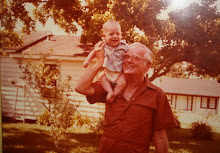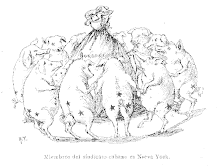Growing up in Baton Rouge, I’m familiar with the many cultural eccentricities and idiosyncrasies that always tend to flower in relatively sparsely populated areas with high numbers of blue-collar, lower-middle-class small home owners. Yet, of the many fascinating phenomena, the most intriguing to me has always been the tendency for an increase in paranoia over crime amongst groups that live in areas where criminal activity is quite rare. One would think that anxiety about crimes typically associated with inner-city life (robbery, carjacking, home invasion, gang violence, etc . . .) would be less intense in areas far removed from the city sprawl. Indeed, that these specific crimes are so common in the city is the reason most commonly given for why people move out to the suburbs and beyond. But, it’s the people that live on backwoods, gravel roads that are the quickest to grab their gun when there is a late-night knock at the door; it’s the people that live hundreds of miles from any housing project that seem the most concerned with incidents of gang violence; and it’s the people that live on acres of land, far from the next house that will have the most NO TRESPASSING signs at the entrance to their long driveway. As I hiked out from my cabin in the woods to the main road yesterday I couldn’t help but notice the many “this home is protected by ACME Home Security,” BEWARE OF DOG, and NO TRESPASSING signs. So where does this come from?
I’m sure that the concentration of irrational paranoia in these areas is in many ways a process of self-selection. This is to say that the people who have the highest levels of anxiety about inner-city crime are the most likely to move out to these areas. But I’m not convinced that this process accounts for all of it. Some of it might be a natural, almost atavistic, reaction to solitude. Remember when you were young and afraid of the dark? It wasn't merely the absence of light that frightened you; the darkness only emphasized the real fear, that of being alone. The dark loneliness could make things and ideas that would ordinarily seem, well, quite ordinary, seem frightening. Something very similar happens when people live removed from regular human contact.
The first time I remember thinking about this strange phenomenon was when a young Japanese exchange student was shot on the doorstep of a Baton Rouge man’s semi-rural home. It was in ’92 or ’93, and I was a high school student at the time. The poor boy was shot dead because he had the terrible misfortune of knocking on the wrong door. The man who shot him—a law-abiding, blue-collar everyman—didn’t think twice about grabbing his gun at the sound of an unexpected, early evening knock at the door. Why he decided to shoot after seeing that it was a high school student, is still something of a mystery to me. But I have to believe that the anxious, evening-news-filled paranoia that likely drove this man out into the sticks in the first place and stoked his fears every night had a lot to do with it.
While I’m sure he spent some time in prison, I honestly don’t remember exactly what happened to that man. (Though I do, however, remember then President Bill Clinton apologizing to Japan for the incident.) But I’m reminded of him, the Japanese boy he killed, and the strange, uniquely American rural paranoia that made that tragedy possible each time I walk down this mountain road. “No Trespassing,” indeed!!









No comments:
Post a Comment